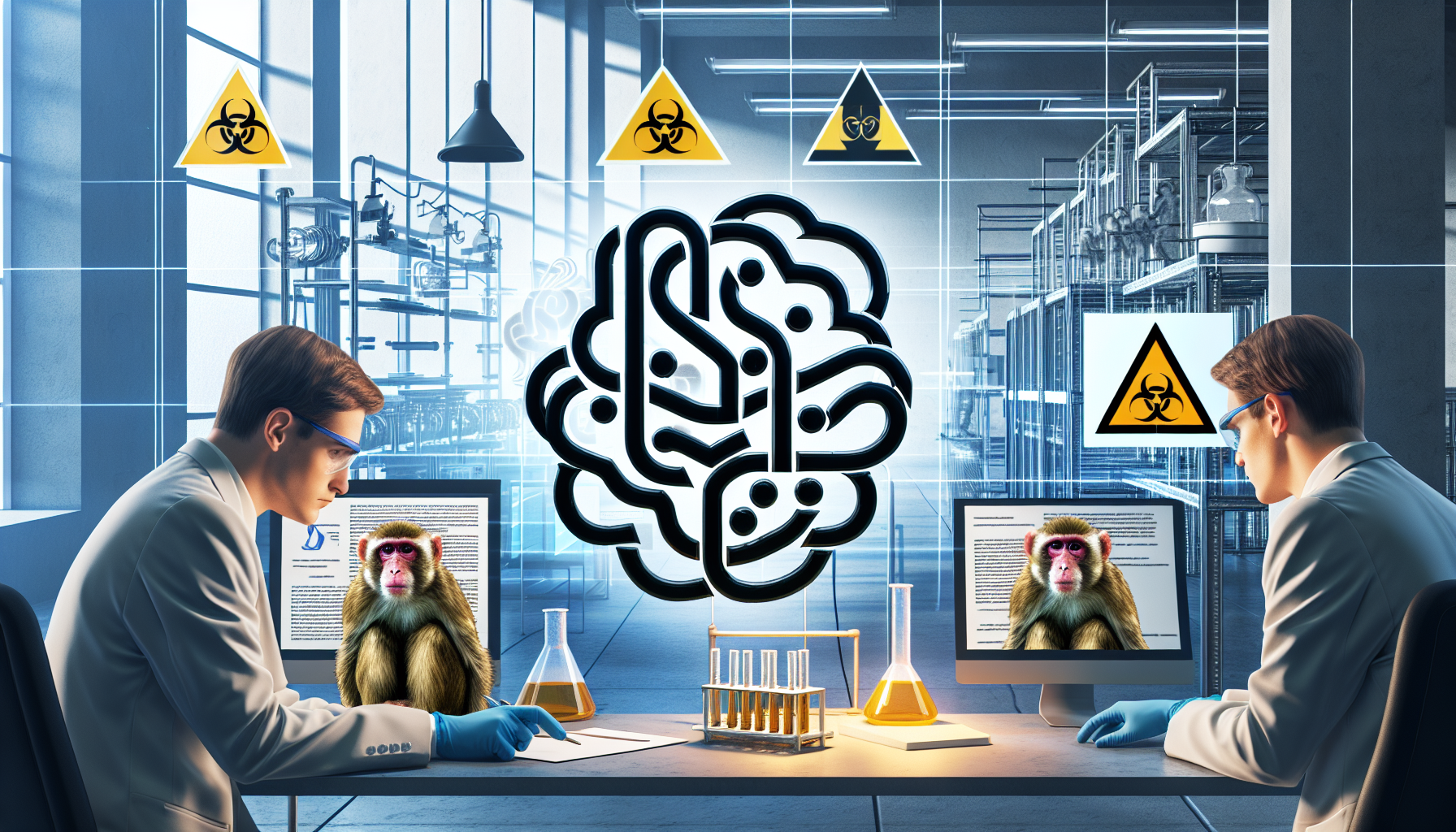“`html
Neuralink Faces Investigation Over Management of Dangerous Primate Pathogens

Quick Read
- Neuralink, an Elon Musk enterprise, faces allegations of improper handling of dangerous primate pathogens.
- PCRM alleges that Neuralink unlawfully moved contaminated materials without following appropriate safety measures.
- The Department of Transportation has received a grievance and is looking into the issue.
- The accusations pertain to devices extracted from infected rhesus monkeys that were part of Neuralink’s experiments.
- Emails indicate that there may have been improper handling and transportation of these devices, which could potentially expose humans to harmful pathogens.
- Neuralink is currently being investigated for potential violations related to animal welfare.
Allegations Made by PCRM Against Neuralink
On Thursday, the PCRM dispatched a letter to the Department of Transportation, detailing Neuralink’s purported breaches and providing pertinent supporting evidence. The DOT, which oversees and regulates the transportation of hazardous materials, has been asked by the animal-welfare organization to investigate Neuralink’s activities and impose fines for any violations found.
Information From the Correspondence
A representative from the Pipeline and Hazardous Materials Safety Administration at the agency confirmed to Gigabeat via email that the DOT has received the complaint from PCRM and is addressing it seriously. The representative indicated that the administration intends to carry out an investigation to ensure Neuralink’s adherence to federal regulations. “PHMSA is dedicated to our mission of safeguarding the public and workers by promoting the safe transport of hazardous materials, including infectious substances,” the representative stated.
The Dangerous Substances Under Consideration
In this instance, the dangerous substances being discussed are Neuralink devices that were implanted and subsequently taken out of the brains of rhesus monkeys, which might have been infected with various pathogens. PCRM’s report mainly highlights “Animal 13,” a female macaque that had two Neuralink implants placed in its brain. After the implantation surgery, Animal 13 appeared to have developed an infection, based on documents that PCRM acquired from UC Davis through a public records request. (UC Davis previously collaborated with Neuralink but concluded the partnership in 2020, as per the university.)
Risks Involved
Neuralink researchers tried to treat Animal 13’s infection and eventually euthanized the monkey, which is a common procedure in animal testing trials. The Neuralink device was extracted, and a post-mortem examination showed that Animal 13 was infected with various pathogens, including an antibiotic-resistant staph infection and a type of bacterial pneumonia. As a rhesus macaque, the monkey might have also been carrying herpes B, a virus naturally found in this species that can lead to severe brain damage and death in humans in rare cases of transmission, according to the CDC.
Improper Handling Allegations
Emails exchanged between personnel from UC Davis and Neuralink, as referenced in PCRM’s letter, suggest that the unclean and contaminated device extracted from Animal 13 in March 2019 was moved from UC Davis’ primate facility to a Neuralink location by someone lacking appropriate hazardous materials training. Additionally, these emails indicate that the contaminated device was improperly packaged during both transport and later storage.
Additional Cases
The documents furnished by PCRM also mention at least two subsequent instances of devices removed from infected monkeys, also occurring in 2019. In these cases, it appears that the devices were handled by properly trained personnel; however, they still might not have been packaged according to the relevant safety standards. An email from an unnamed UC Davis employee describes all three devices as having “returned to the site in an open box without a secondary container.” The email continues by stating, “Ultimately, we at the Primate Center [redacted] are at risk due to the re-entry of uncontained, monkey-contaminated hardware… This poses a risk to anyone who comes into contact with the contaminated explanted hardware, and we are emphasizing this issue because we are concerned about human safety.”
Legal Ramifications
The documents submitted by PCRM do not list any occurrences of human harm caused by Neural.
Source: gizmodo.com
